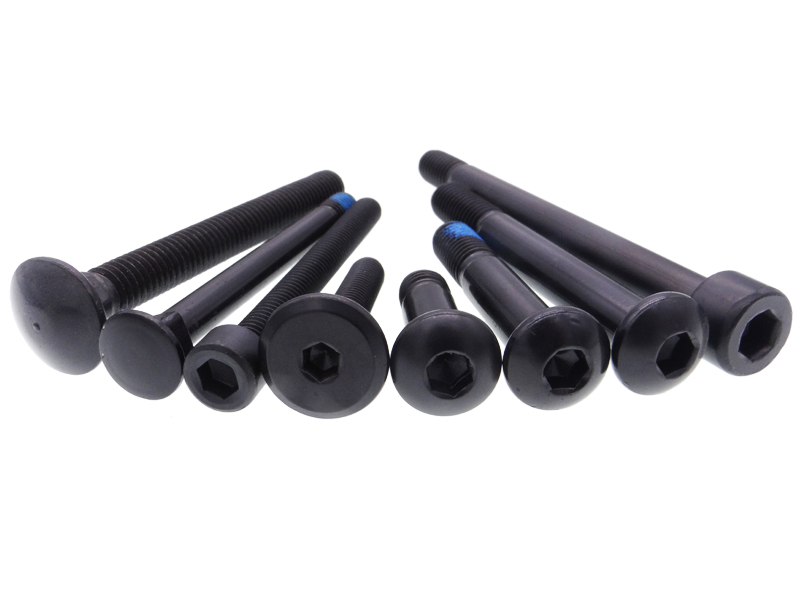Automotive manufacturers use a variety of bolts and fasteners to assemble vehicles, depending on the specific application and requirements. However, some common types of bolts used in automotive applications include:
Hex Head Bolts: Also known as hex head bolts, these bolts have a six-sided head that can be tightened or loosened using a wrench or socket. They are typically used in high-stress applications where high clamping force is required, such as engine mounts, suspension components, and exhaust systems.
Flanged Bolts: Flange bolts have a built-in washer that distributes the load across a larger surface area and prevents the bolt from loosening due to vibrations. They are commonly used in automotive applications where high strength and resistance to vibration are critical, such as chassis components and steering linkages.
Shoulder Bolts: Shoulder bolts have a cylindrical shoulder between the head and threaded section that provides a precise location for components to be mounted. They are often used in automotive applications where alignment is critical, such as brake calipers and suspension linkages.
Stud Bolts: Stud bolts are partially threaded bolts that have a smooth shank at one end and threads at the other. They are commonly used in automotive applications where components need to be secured with nuts or other hardware, such as cylinder heads and exhaust manifolds.
These are just a few examples of the many types of bolts and fasteners used in automotive applications. The specific type and size of bolt used will depend on the specific application, material, and load requirements.





